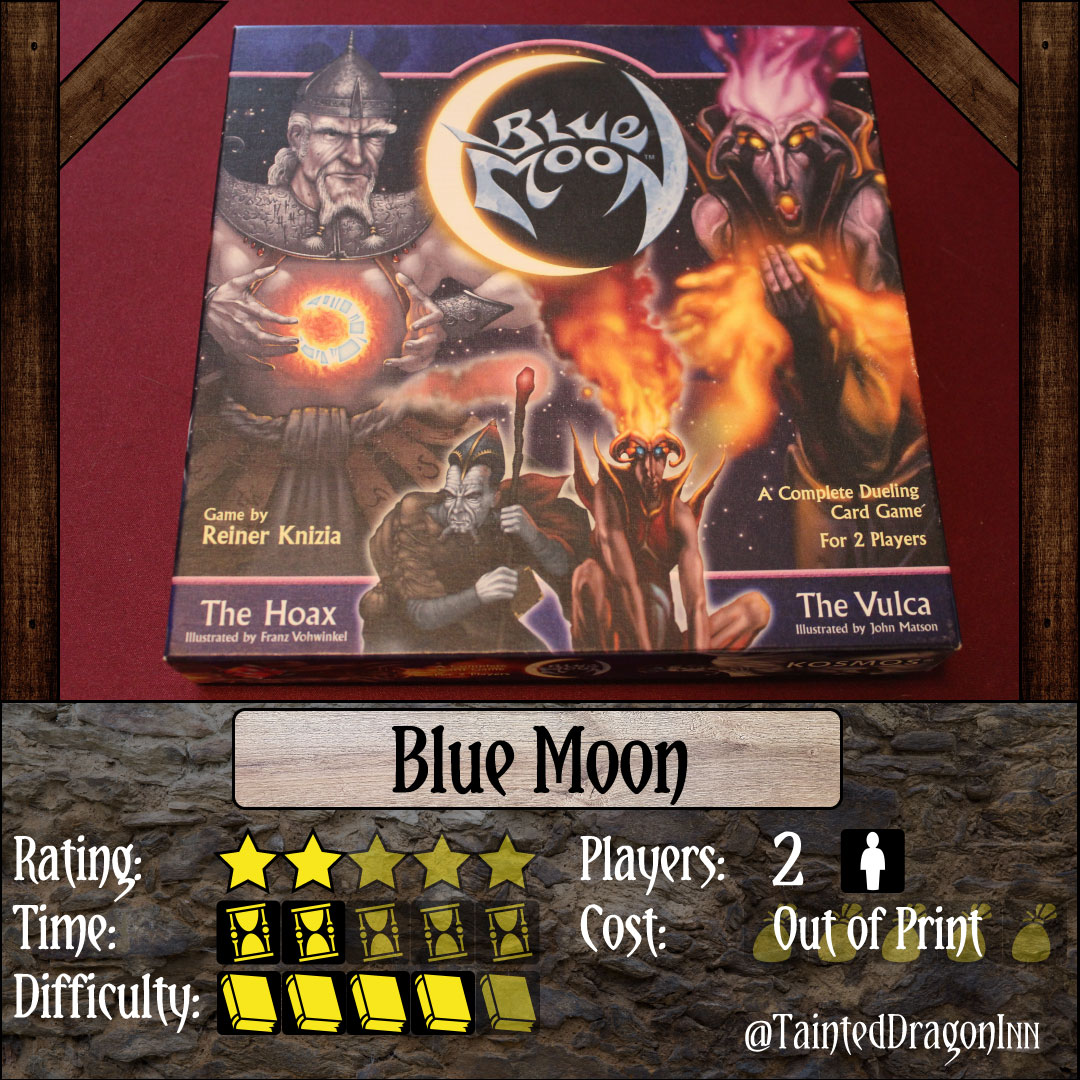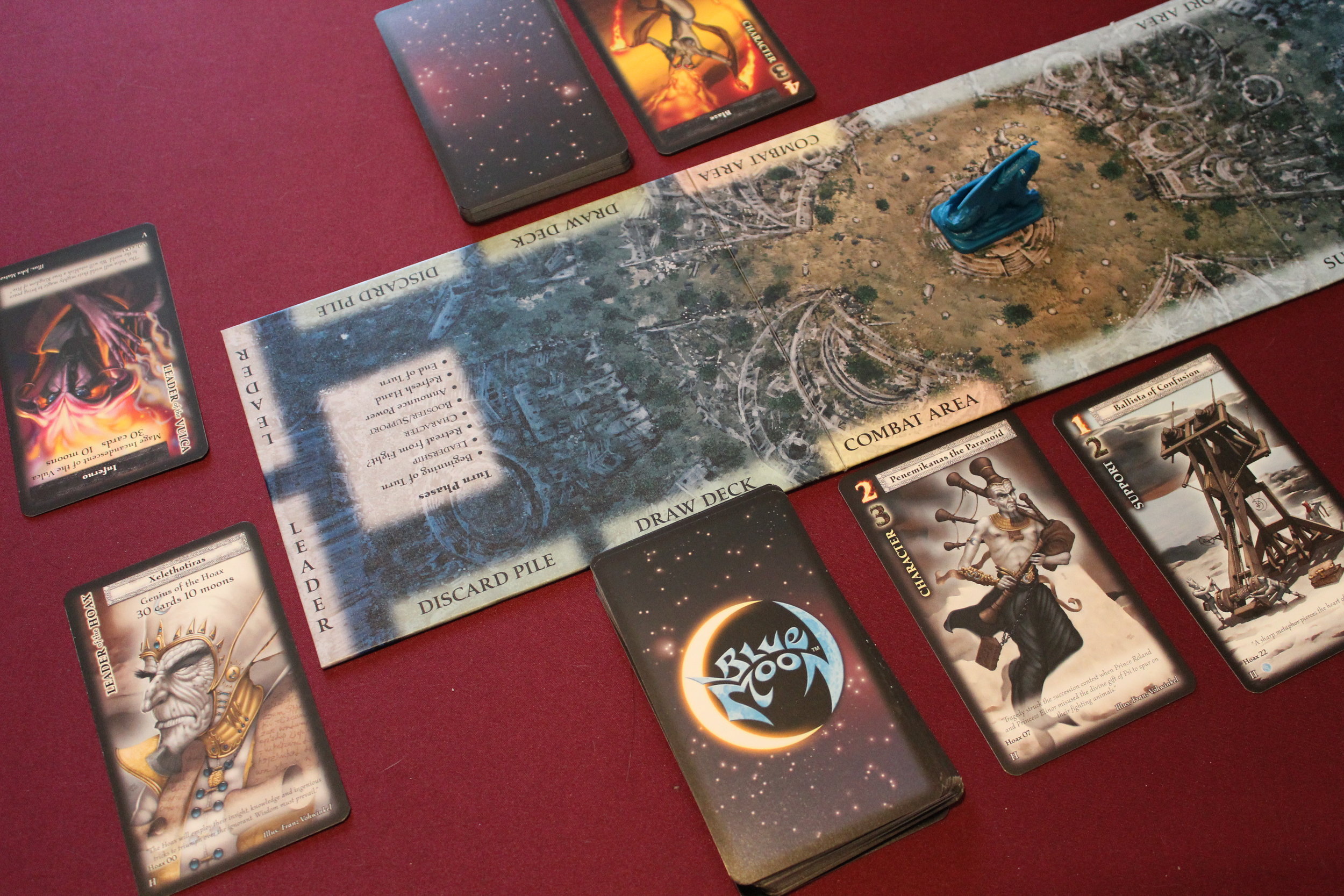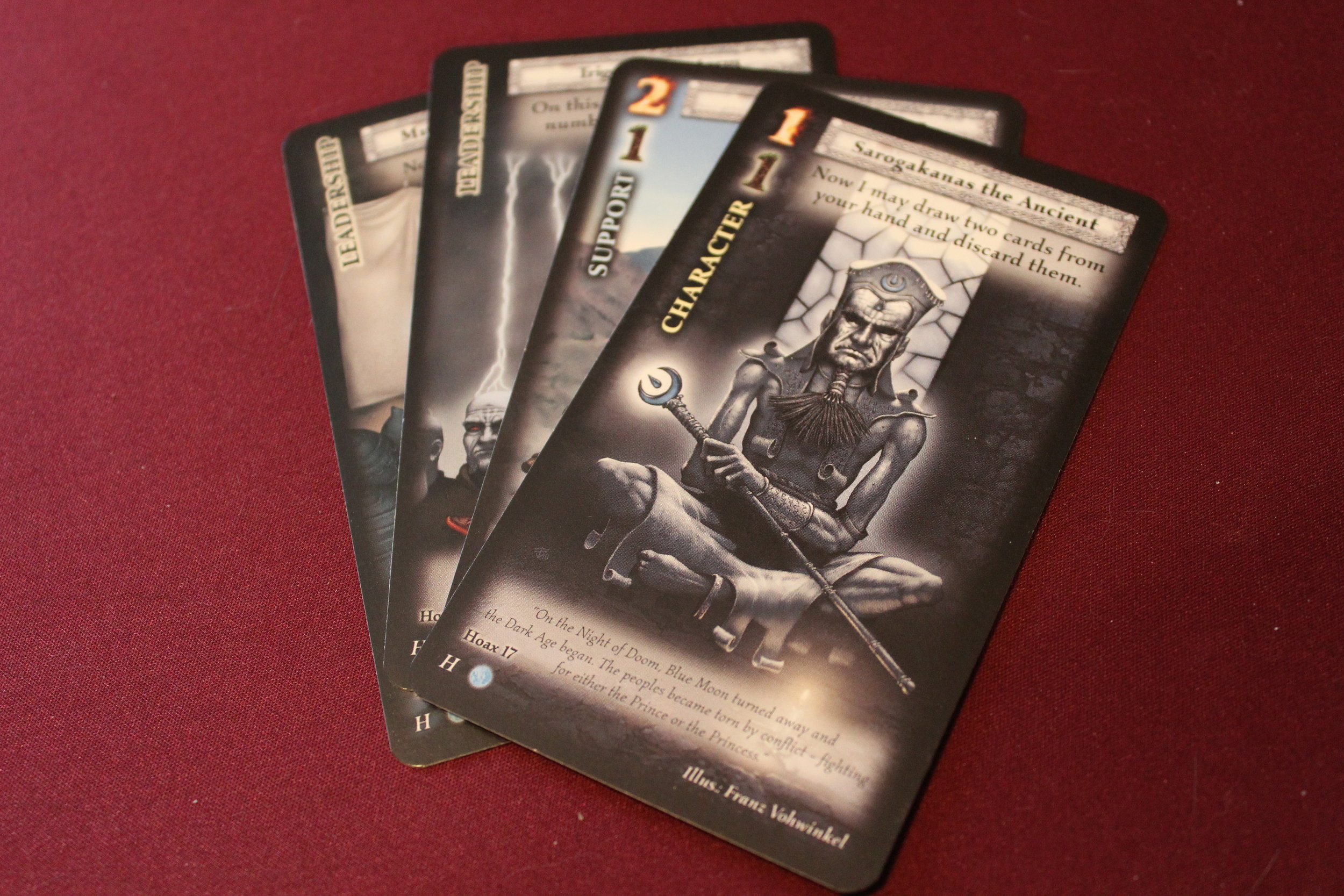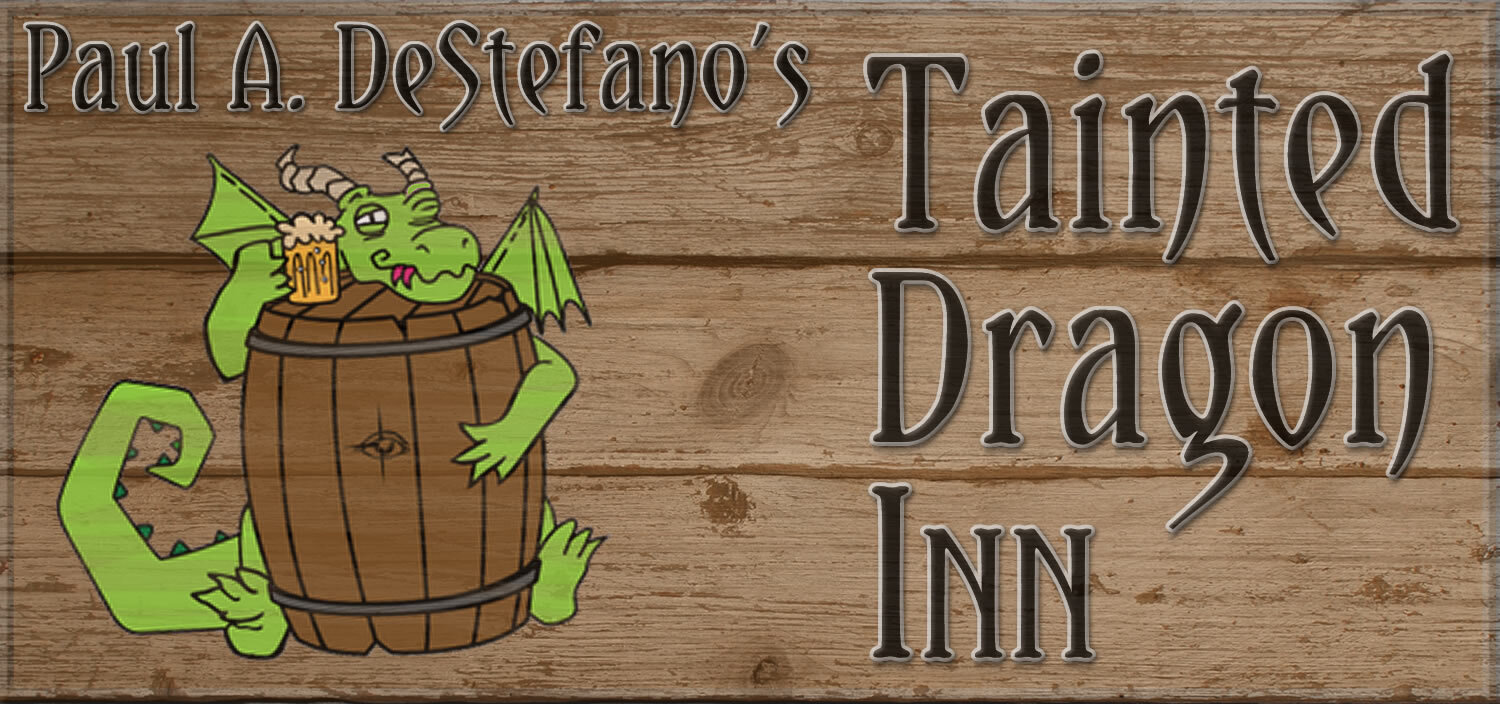Blue Moon
/


Blue Moon is a rapid fire series of intense concentrations as each battle is wagered, but within a few minutes, it is resolved and the next battle begins. This is now available all in a single box called Blue Moon Legends.
This constant reset of the action is like a great exhalation after holding your breath. You duel out intricate details. Sometimes just 1 or 2 cards. Other times, then tension builds like a great rubber band about to pull apart over multiple turns, and you feel like you're dancing on razor blades hoping your next card will help.
Then, someone retreats. Breathe. This lets my son reset his brain and the next fight is seen as a new event.
Each duel is deceptively simple. Most cards are based around the two prominent numbers of Fire and Earth. Each turn you must place a fantasy being and possibly some gear or spell or allies along with it in an attempt to meet or beat the prior turn's score in whatever element was chosen at the start of the battle.
This is simplistic. This is straightforward. This is not multi-pronged like Warhammer Invasion. There is no overarching strategy. It is a single quest: Meet that number.
Then comes what my son refers to as "the wacky crap". I play a guy with strength 3. He plays a strength 2 plus 2 on another card. Then I play a 4 which lets me ignore his second card. Then he plays something so my even numbers don't count. Then one of us doubles our values. Then...
Looking at your hand of cards and going through the algebraic permutations as you try to figure whether or not you want to push it to the wall and hope he can't reply or just ease out a little at a time, deciding carefully what to save is nerve wracking.
It might be trick taking, in a weird way via Magic The Gathering.
Support cards stay in play for the whole hand. Unless your opponent does some Wacky Crap (TM) to disrupt it. Boosters are like one shot gear that only affects your current card. There's other cards, too, that basically let you cheat in other ways.
The decks are radically different. We have the two from the base and four more. My son is absolutely uninterested in the deckbuilding aspect, so to be fair, when I play him I use a base setup. Just within the six decks, the disparity between powers is amazing. And for some reason only known to the true god of Blue Moon (Knizia), they're balanced.
Each deck has advantages and disadvantages that become clear with time. My son is a die hard Khind fan. These guys can come out in groups or slowly adding strengths rather than replacing prior fighters. If you have the right ones. Only the Khind have that ability. Learning when to let out one lone guy and when to have his gang in backup is supremely important.
The Flit deck seems tailored to beat the Khind. They have several cards that disable Khind abilities. But due to their nature of play, constantly returning back to your hand rather than staying on the table, they rarely get the bonus points granted for a "big fight", when 6 or more cards are on your side of the table. The Khind often get that bonus due to their gang ability.
Tiny balances like that run throughout the game.
It's a very tense tactical struggle. It is full of "take that" shots like the annoying mutant cards that can change the element the battle is in under very specific conditions, or the shield cards which basically reset a battle to zero, wiping out all of your opponent's hard fought combos.
The art for each race is by a different artist, and they're always interesting in a high fantasy silly kind of way. The decks play very, very different, and the first time you play a deck is kind of stumbling through a dark room until you find its key cards that truly define it.


